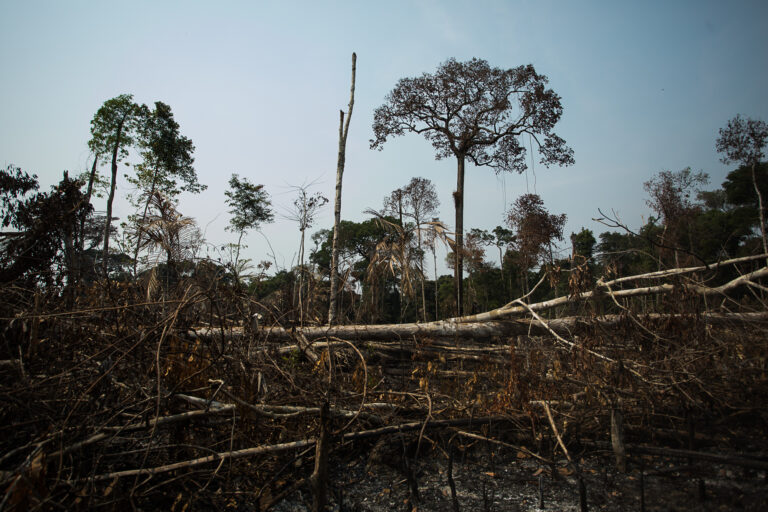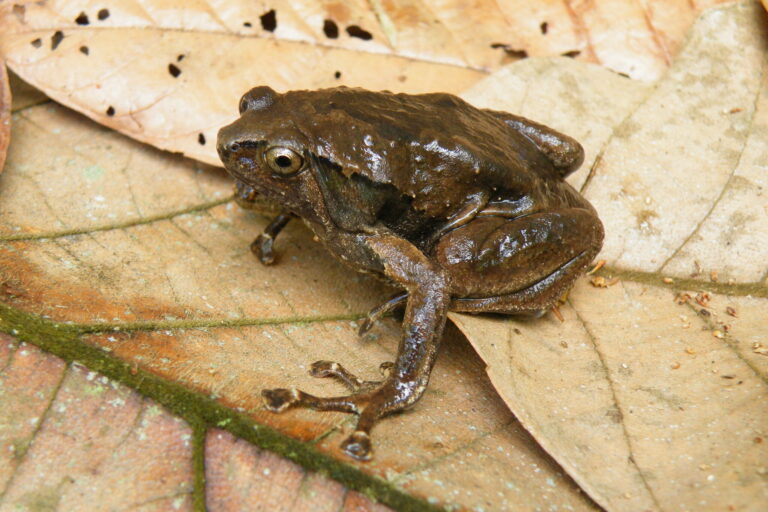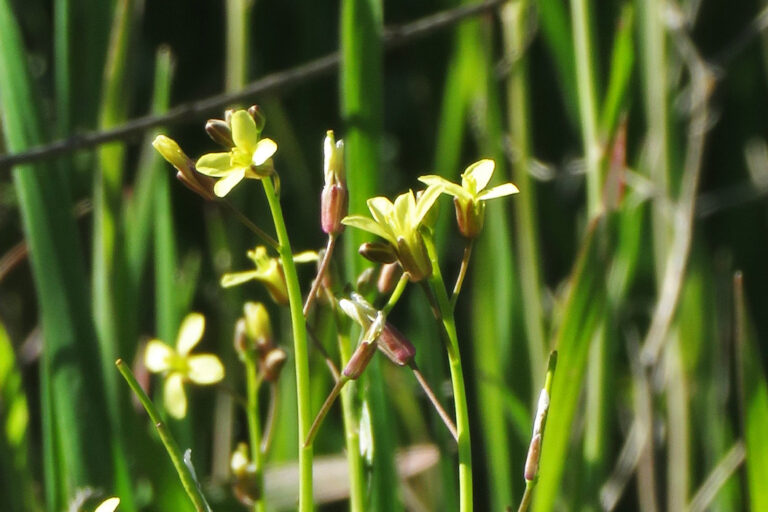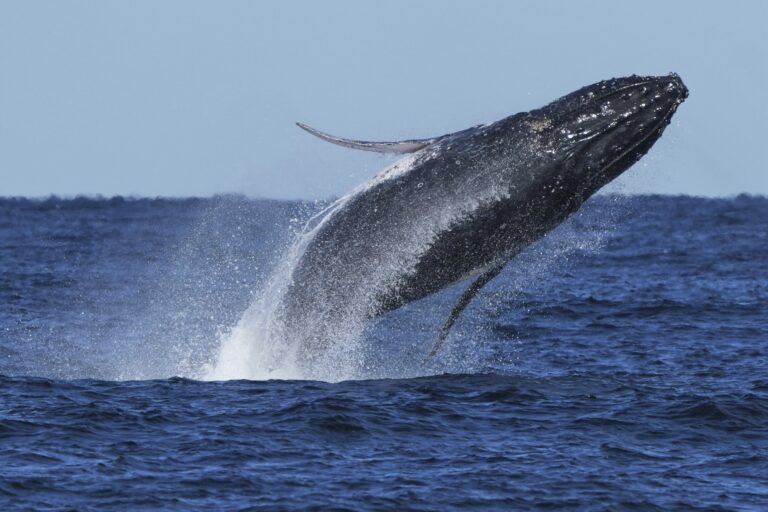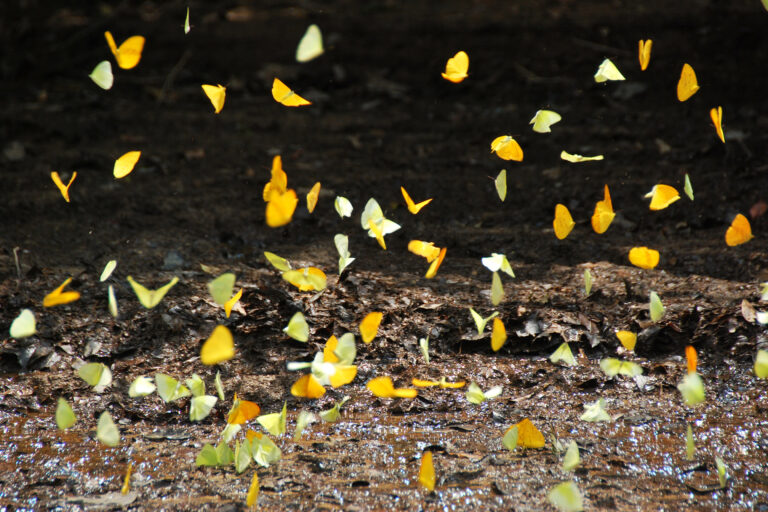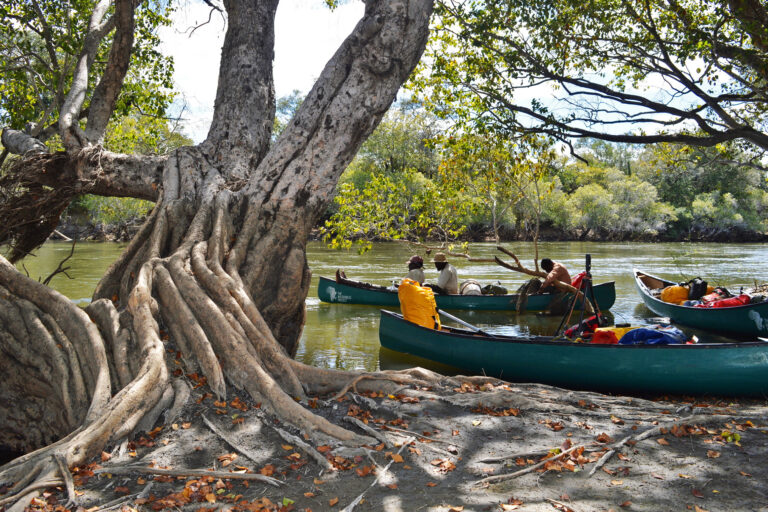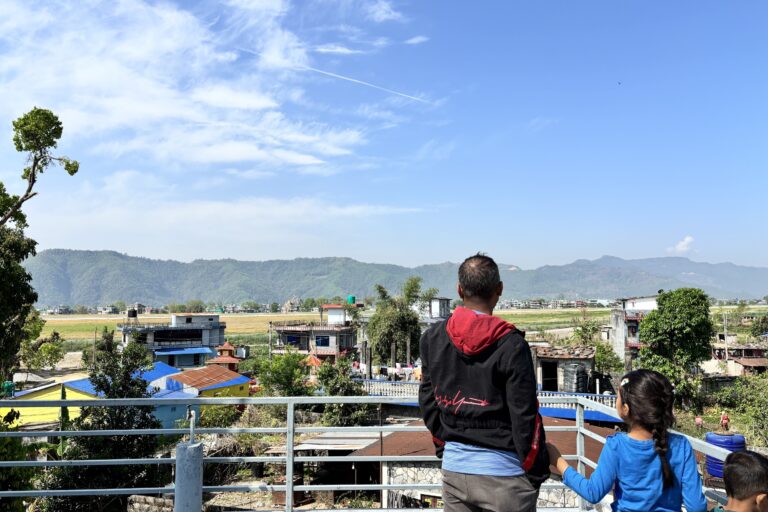
Gas flaring just across the river from Yasuni National Park. Photo by Jeremy Hance.
By 2016, oil drilling will begin in what scientists believe is the most biodiverse place on the planet: remote Yasuni National Park. Late last month, Ecuador announced it had approved permits for oil drilling in Yasuni’s Ishpingo-Tambococha-Tiputinin (ITT) block, an untouched swathe of primary rainforest covering around 100,000 hectares or about 10 percent of the park. Approval was granted after an attempt by activists to trigger a national referendum on the issue was thrown out by Ecuador’s National Electoral Council.
The permits will allow a subsidiary of the national oil company, Petroamazonas, to drill in the ITT blocks. This part of Yasuni has been little visited by outsiders, including tourists and scientists. In addition to startlingly biodiversity, the area is also home to indigenous tribes who have chosen voluntary isolation.
The battle over Yasuni National Park’s ITT blocks, also known as oil block 43, goes back several years. In 2007, the government of Ecuador announced the Yasuni-ITT Initiative, which would have left the ITT block unexploited if the international community paid Ecuador $3.6 billion, or half the amount estimated from the untapped oil. The funds would have been delivered into a UN Trust Fund and used for sustainable and development programs in Ecuador. However, the President of Ecuador, Rafael Correa, scrapped the initiative last year after only $13 million was delivered, although $330 million was pledged.
After the government abandoned the ITT-Initiative, activists took over the task of safeguarding the rainforest. A coalition of groups, dubbed YASunidos, collected around 850,000 signatures to protect the park. Under Ecuadorian law, a national referendum is triggered if campaigners collect signatures from 5 percent of the national electorate. In this case, activists actually collected 25 percent more than required.

Dripping fungi in Yasuni. Photo by: Jeremy Hance.
However, when reviewing the signatures the National Electoral Council threw out nearly half a million or almost 60 percent, saying many were repeats and others were fakes.
Activists, though, have accused the NEC and the government of Ecuador of fraud in throwing out the signatures.
“[This] is the end of the facade of democracy in Ecuador. Since the beginning of the process we have been subject to physical and verbal attacks, so this was not unexpected,” Martin Carbonell, a spokesman for YASunidos, told the Guardian. “The whole process to defend Yasuni and the rights of nature is a battle we have fought for a long time. We can now appeal to the electoral tribunal, to Ecuador’s administrative court and also to the Inter American court of human rights. We will still fight for Yasuni and the Indigenous peoples.”
Yet, time is running out. With the permits now approved, oil companies are expected to move quickly into the ITT blocks, producing the first oil within less than two years.
Recent documents obtained by the Guardian further allege that in 2009 Ecuador was negotiating a secret deal with Chinese bank over ITT’s oil even as it was promoting its innovative initiative to the world community. Yet the government has vehemently denied this, calling the document in question “fraudulent.”
Although little reported, other portions of Yasuni National Park have been exploited for oil for decades with impacts on indigenous people and biodiversity. Most recently oil roads have been built in block 31, a massive area just west of ITT; however the government has dubbed these roads—large enough for two big vehicles to pass—”ecological trails.”
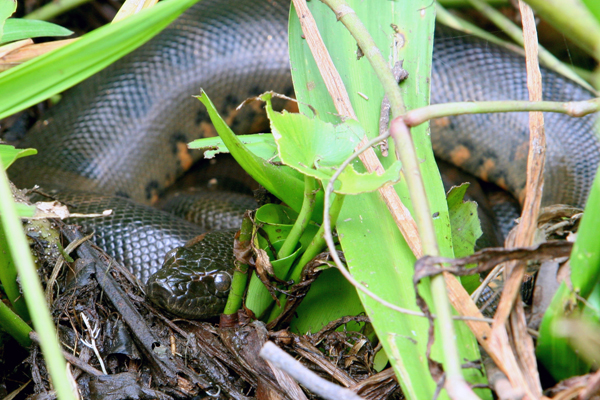
Juvenile green anaconda (Eunectes murinus) in Yasuni National Park. Photo by: Jeremy Hance.
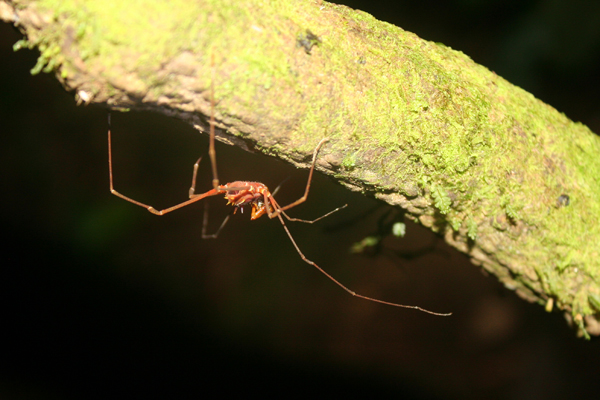
Unidentified harvestman (arachnid) in Yasuni National Park. Photo by: Jeremy Hance.

Map of oil blocks within Yasuní National Park.
Related articles
Stolen information may derail Yasuni drilling referendum

(04/30/2014) Environmental activists in Ecuador are accusing the country’s National Electoral Council of breaking into sealed boxes to interfere with completed petitions that call for a referendum on oil drilling in the Amazonian region of Yasuní. The environmentalists had spent six months collecting signatures to oppose Rafael Correa’s plans to extract oil in the eastern portion of the country.
Ecuador will have referendum on fate of Yasuni after activists collect over 700,000 signatures
(04/16/2014) In what is a major victory for environmentalists, campaigners with United for Yasuni have collected 727,947 signatures triggering a national referendum on whether or not oil drilling should proceed in three blocs of Yasuni National Park in Ecuador.
Featured video: celebrities speak out for Yasuni
(04/02/2014) A group of celebrities, including recent Academy Award winner Jared Leto, Law and Order‘s Benjamin Bratt, and Kill Bill‘s Daryl Hannah, have lent their voices to a new Public Service Announcement to raise signatures to protect Ecuador’s Yasuni National Park from oil drilling.
Oil or rainforest: new website highlights the plight of Yasuni National Park
(03/20/2014) A new multimedia feature story by Brazilian environmental news group, ((o))eco, highlights the ongoing debate over Yasuni National Park in Ecuador, arguably the most biodiverse place on the planet.
(02/13/2014) These are sights that have rarely been seen by human eyes: a stealthy jaguar, a bustling giant armadillo, and, most amazingly, a sloth slurping up clay from the ground. A new compilation of camera trap videos from Yasuni National Park in the Ecuadorean Amazon shows a staggering array of species, many cryptic and rare.
High-living frogs hurt by remote oil roads in the Amazon

(01/14/2014) Often touted as low-impact, remote oil roads in the Amazon are, in fact, having a large impact on frogs living in flowers in the upper canopy, according to a new paper published in PLOS ONE. In Ecuador’s Yasuni National Park, massive bromeliads grow on tall tropical trees high in the canopy and may contain up to four liters of standing water. Lounging inside this micro-pools, researchers find a wide diversity of life, including various species of frogs. However, despite these frogs living as high as 50 meters above the forest floor, a new study finds that proximity to oil roads actually decreases the populations of high-living frogs.
Ecuador’s government shuts down indigenous rights organization over oil battle
(12/10/2013) Last Wednesday, the government of Ecuador shutdown the indigenous rights NGO, Fundación Pachamama, in Quito over the group’s opposition to oil drilling in indigenous areas. More than a dozen government officials showed up at Pachamama’s office with a resolution by the Ministry of Environment that officially dissolved the organization, the first such moved by the government which in June passed an Executive Decree that tightened governmental oversight of the country’s NGOs.







